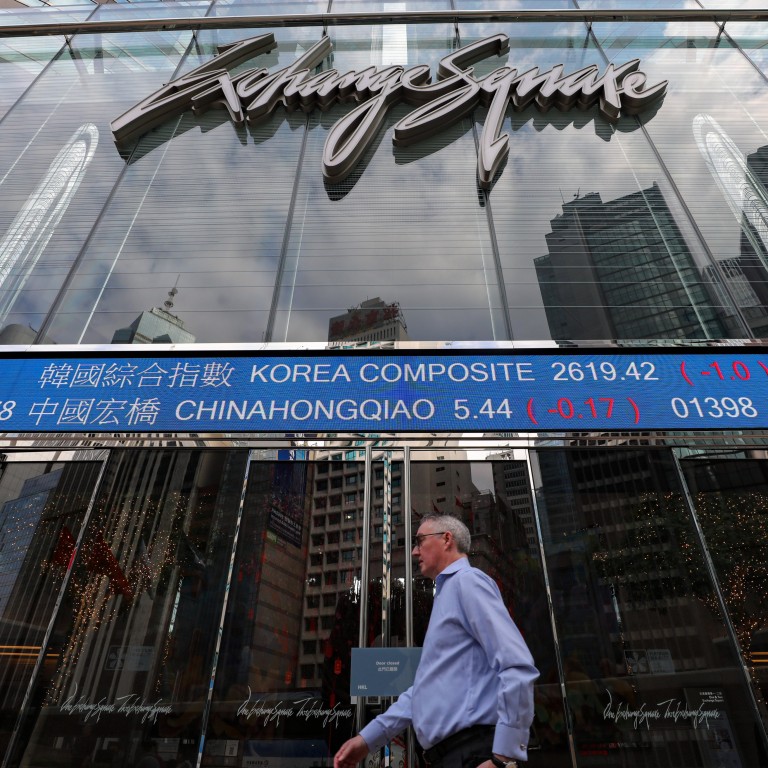
Hong Kong stocks firm as China inflation report triggers hopes of consumer demand rebound
- China inflation data showed consumer prices rose in February for the first time since last August
- HSBC expects China’s central bank to cut banks’ reserve requirement ratio by 50 basis points and lower interest rates by 20 basis points in the second half of the year
The Hang Seng Index advanced 2.2 per cent to 16,587.57 at the close. The Hang Seng Tech Index gained 2.9 per cent and the Shanghai Composite Index added 0.7 per cent.
Alibaba Group Holding climbed 2 per cent to HK$72.80 and Tencent Holdings added 3.2 per cent to HK$278.60. JD.com rallied 6.4 per cent to HK$98.55 and Meituan advanced 5.3 per cent to HK$89.20. Xinyi Solar Holdings surged 11 per cent to HK$6.57 on expectations that China’s power grid companies will accept more electricity generated by solar power.
“It would be huge for Hong Kong stocks and boost demand for trading,” said Dai Ming, a fund manager at Huichen Asset Management in Shanghai. “That would also put a floor on the market, particularly when foreign investors led by the US are fleeing Hong Kong’s market.”
Jewellery retailer Chow Tai Fook rallied 3.3 per cent to HK$12.06 as growing demand for gold as a store of wealth in the current uncertain environment triggered a record-breaking rally in the price of the metal.
Economists are cautiously optimistic although the rise in consumer inflation gains were largely attributed to seasonality, in which last year’s Lunar New Year began in January, compared with February in 2024.
“The recovery in consumer prices is a welcome sign of improved domestic demand,” said Erin Xin, an economist at HSBC Holdings in Hong Kong.
Xin said China’s central bank could cut banks’ reserve requirement ratio by 50 basis points and lower interest rates by 20 basis points in the second half of the year, as “We are not yet out of the woods with trade still facing uncertainty and the property drag ongoing”.
Adding to the positive mood, Chinese stocks saw an inflow of US$9.6 billion from foreign investors in February, ending six months of selling, according to the Institute of International Finance. Aggregate purchases of stocks in other emerging markets were US$7.6 billion in the same period.
China’s annual legislative National People’s Congress (NPC) concluded on Monday and the political advisory conference wrapped up its session a day earlier.
Other major Asian markets all headed south. Japan’s Nikkei 225 tumbled 2.2 per cent on expectations that the nation’s central bank will end its negative interest rate policy at this month’s meeting. South Korea’s Kospi retreated 0.8 per cent, while Australia’s S&P/ASX 200 lost 1.8 per cent.

